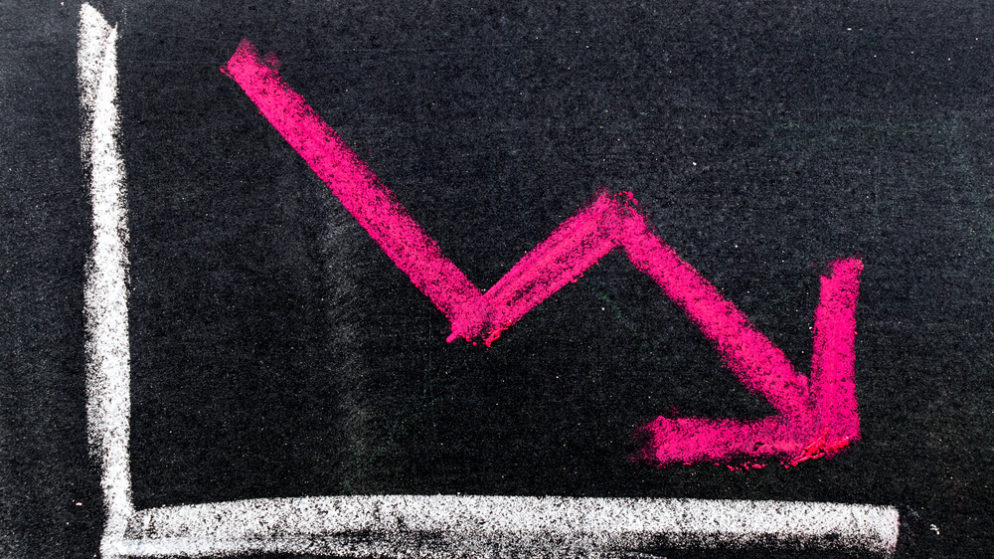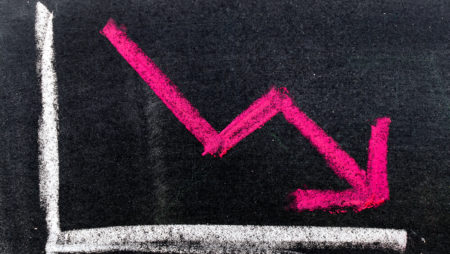

It’s not surprising that along with traditional casino revenue, New Jersey online casino revenue is also down in November. Some of the drops could be attributed to people spending their time and money at home over the holidays, but the lingering effects of the COVID-19 lockdowns and restrictions also are a major factor.
For much of the year, Atlantic City’s casino industry has experienced catastrophic dips in revenue. The situation did improve over the summer, when Governor Phil Murphy finally allowed the casinos to reopen for the summer tourist season.
However, in November, there was a predictable drop in revenue. According to the New Jersey Division of Gaming Enforcement, the Atlantic City casinos sustained a revenue drop of 10% in November. That month, the nine casinos in Atlantic City generated $260.86 million in revenue, which is significantly lower compared to the $288.6 million in November 2019.
Jane Bokunewicz, a gaming analyst at Stockton University, observed that the city’s land-based casinos and sportsbooks made revenue gains in September and October. But Bokunewicz notes that the November drop can be attributed to what is being called the second-wave of Covid-19 and the governor’s Executive Order 194, which went into effect on November 12. That order mandated that indoor dining options must be closed from 10 P.M to 5 A.M. Bokunewicz further noted that the travel restrictions and constant warnings about large gatherings were also a factor.
On the other hand, New Jersey sports betting revenue for November had a record-breaking $931.6 million in revenue.
What we cover
New Shutdowns Will Further Hurt New Jersey Casino Revenue
New Jersey’s governor was one of the first to shut down his state’s economy in response to the virus. It took months to loosen the lockdown restrictions, but by that time, some businesses had closed their doors open forever.
Now there’s talk of a second wave, and Governor, Phill Murphy has announced a new set of mandates to restrict business and movement throughout the state. These mandates are undoubtedly taking a toll on all types of business, especially those in the restaurant and hospitality industry. State officials are also considering another possible shutdown, due to increasing positive test rates.
With another looming shutdown, it will be very difficult for the casinos in Atlantic City to not only turn a profit, but also to keep their people employed. If the governor does mandate another complete shutdown, it could deal with New Jersey’s casino industry a death blow.
New Jersey’s Online Casino Revenue
While the gaming industry has bet heavily on online casino revenue during the ongoing shutdowns and restrictions, New Jersey online casino revenue saw a decline in November. It’s possible that the state’s gamblers were simply saving their money for the holidays.
While a slight downturn in online casino revenue in November is disheartening, it’s most likely temporary.
Online casino revenue for November 2020 was $89,430,573, compared to October 2020, when online casino revenue reached $90,933,749. However, this November revenue nearly doubled, compared to November 2019’s online casino revenue of $47,645,412.
Month-on-month, online casino revenue in New Jersey saw a 1.65% revenue decline, but year-on-year, online casino revenue increased by 87.7%.
Despite a slight decline in November, online casino revenue is expected to pick up in December; that’s especially true if the land-based casinos are shut down again.
New Jersey Sports Betting Revenue Also Declined
Revenue fell for sports betting in November, like the rest of the gaming industry, including online casino revenue, in New Jersey. As with the other areas of the gaming industry in New Jersey, sports betting revenue will likely improve in December.
Sports betting revenue in November 2020 was $50,554,535, compared to October 2020 revenue of $58,508,647. But like the online casino revenue, sports betting almost doubled, compared to November 2019’s $32,895,546. So that’s a month-on-month 13.6% decrease, and a year-on-year revenue increase of 53.7%.








